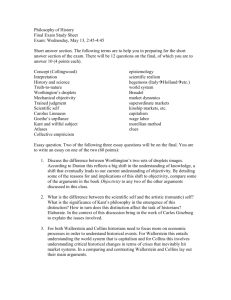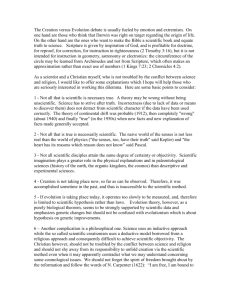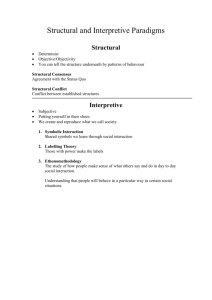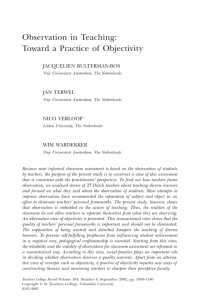Steven L. Jager, C.P.A.
advertisement
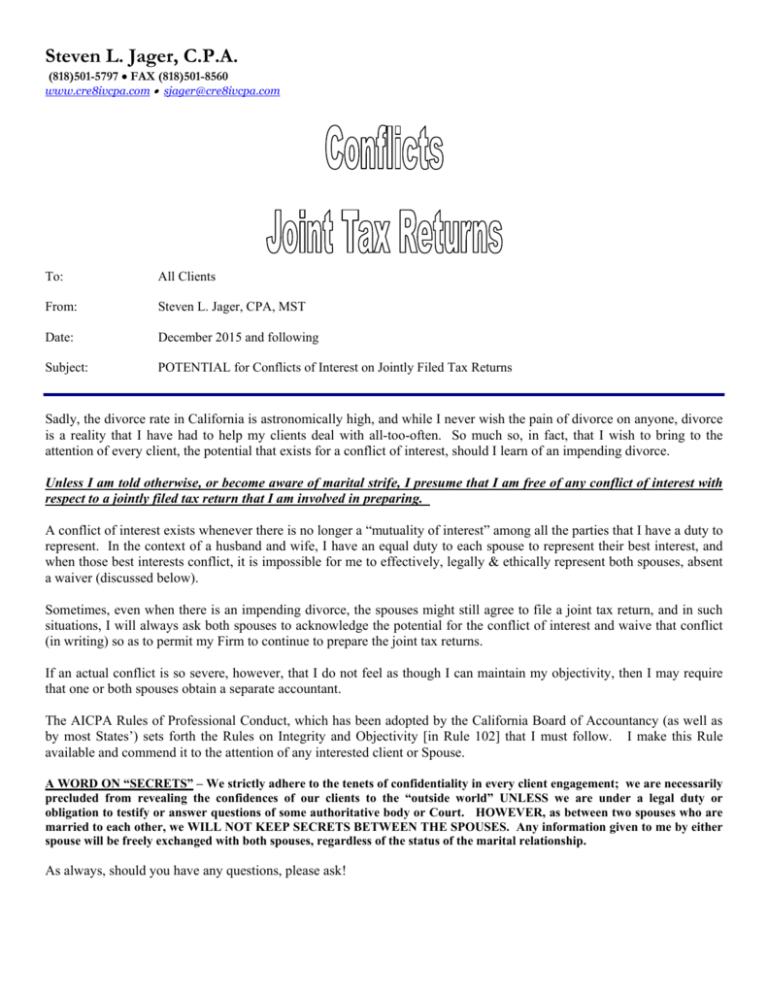
Steven L. Jager, C.P.A. (818)501-5797 FAX (818)501-8560 www.cre8ivcpa.com sjager@cre8ivcpa.com To: All Clients From: Steven L. Jager, CPA, MST Date: December 2015 and following Subject: POTENTIAL for Conflicts of Interest on Jointly Filed Tax Returns Sadly, the divorce rate in California is astronomically high, and while I never wish the pain of divorce on anyone, divorce is a reality that I have had to help my clients deal with all-too-often. So much so, in fact, that I wish to bring to the attention of every client, the potential that exists for a conflict of interest, should I learn of an impending divorce. Unless I am told otherwise, or become aware of marital strife, I presume that I am free of any conflict of interest with respect to a jointly filed tax return that I am involved in preparing. A conflict of interest exists whenever there is no longer a “mutuality of interest” among all the parties that I have a duty to represent. In the context of a husband and wife, I have an equal duty to each spouse to represent their best interest, and when those best interests conflict, it is impossible for me to effectively, legally & ethically represent both spouses, absent a waiver (discussed below). Sometimes, even when there is an impending divorce, the spouses might still agree to file a joint tax return, and in such situations, I will always ask both spouses to acknowledge the potential for the conflict of interest and waive that conflict (in writing) so as to permit my Firm to continue to prepare the joint tax returns. If an actual conflict is so severe, however, that I do not feel as though I can maintain my objectivity, then I may require that one or both spouses obtain a separate accountant. The AICPA Rules of Professional Conduct, which has been adopted by the California Board of Accountancy (as well as by most States’) sets forth the Rules on Integrity and Objectivity [in Rule 102] that I must follow. I make this Rule available and commend it to the attention of any interested client or Spouse. A WORD ON “SECRETS” – We strictly adhere to the tenets of confidentiality in every client engagement; we are necessarily precluded from revealing the confidences of our clients to the “outside world” UNLESS we are under a legal duty or obligation to testify or answer questions of some authoritative body or Court. HOWEVER, as between two spouses who are married to each other, we WILL NOT KEEP SECRETS BETWEEN THE SPOUSES. Any information given to me by either spouse will be freely exchanged with both spouses, regardless of the status of the marital relationship. As always, should you have any questions, please ask! AICPA Rules of Professional Conduct ET Section 102 - Integrity and Objectivity .01 Rule 102—Integrity and objectivity. In the performance of any professional service, a member shall maintain objectivity and integrity, shall be free of conflicts of interest, and shall not knowingly misrepresent facts or subordinate his or her judgment to others. [As adopted January 12, 1988.] Interpretations under Rule 102 —Integrity and Objectivity .02 102-1—Knowing misrepresentations in the preparation of financial statements or records. A member shall be considered to have knowingly misrepresented facts in violation of rule 102 [ET section 102.01] when he or she knowingly— a. Makes, or permits or directs another to make, materially false and misleading entries in an entity’s financial statements or records; or b. Fails to correct an entity’s financial statements or records that are materially false and misleading when he or she has the authority to record an entry; or c. Signs, or permits or directs another to sign, a document containing materially false and misleading information. [Revised, effective May 31, 1999, by the Professional Ethics Executive Committee.] .03 102-2—Conflicts of interest. A conflict of interest may occur if a member performs a professional service for a client or employer and the member or his or her firm has a relationship with another person, entity, product, or service that could, in the member's professional judgment, be viewed by the client, employer, or other appropriate parties as impairing the member's objectivity. If the member believes that the professional service can be performed with objectivity, and the relationship is disclosed to and consent is obtained from such client, employer, or other appropriate parties, the rule shall not operate to prohibit the performance of the professional service. When making the disclosure, the member should consider Rule 301, Confidential Client Information [ET section 301.01]. Certain professional engagements, such as audits, reviews, and other attest services, require independence. Independence impairments under rule 101 [ET section 101.01], its interpretations, and rulings cannot be eliminated by such disclosure and consent. The following are examples, not all-inclusive, of situations that should cause a member to consider whether or not the client, employer, or other appropriate parties could view the relationship as impairing the member's objectivity: A member has been asked to perform litigation services for the plaintiff in connection with a lawsuit filed against a client of the member's firm. A member has provided tax or personal financial planning (PFP) services for a married couple who are undergoing a divorce, and the member has been asked to provide the services for both parties during the divorce proceedings. In connection with a PFP engagement, a member plans to suggest that the client invest in a business n which he or she has a financial interest. A member provides tax or PFP services for several members of a family who may have opposing interests. A member has a significant financial interest, is a member of management, or is in a position of influence in a company that is a major competitor of a client for which the member performs management consulting services. A member serves on a city's board of tax appeals, which considers matters involving several of the member's tax clients. A member has been approached to provide services in connection with the purchase of real estate from a client of the member's firm. A member refers a PFP or tax client to an insurance broker or other service provider, which refers clients to the member under an exclusive arrangement to do so. A member recommends or refers a client to a service bureau in which the member or partner(s) in the member's firm hold material financial interest(s). The above examples are not intended to be all-inclusive. [Replaces previous interpretation 102-2, Conflicts of Interest, August 1995, effective August 31, 1995.]
